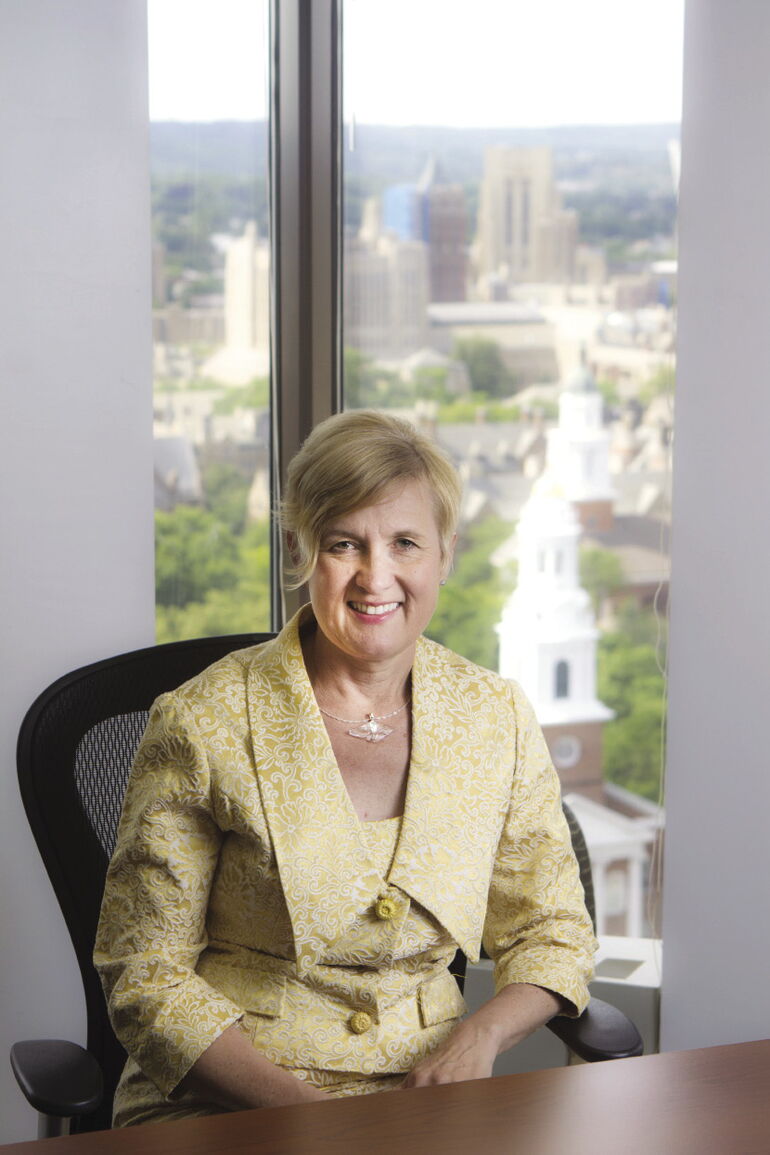Processing Your Payment
Please do not leave this page until complete. This can take a few moments.
-
News
-
Editions
-
- Lists
-
Viewpoints
-
HBJ Events
-
Event Info
- 2024 Economic Outlook Webinar Presented by: NBT Bank
- Best Places to Work in Connecticut 2024
- Top 25 Women In Business Awards 2024
- Connecticut's Family Business Awards 2024
- What's Your Story? A Small Business Giveaway 2024 Presented By: Torrington Savings Bank
- 40 Under Forty Awards 2024
- C-Suite and Lifetime Achievement Awards 2024
- Connecticut's Health Care Heroes Awards 2024
-
-
Business Calendar
-
Custom Content
- News
-
Editions
View Digital Editions
Biweekly Issues
- April 15, 2024
- April 1, 2024
- March 18, 2024
- March 4, 2024
- February 19, 2024
- February 5, 2024
- January 22, 2024
- January 8, 2024
- Dec. 11, 2023
- + More
Special Editions
- Lists
- Viewpoints
-
HBJ Events
Event Info
- View all Events
- 2024 Economic Outlook Webinar Presented by: NBT Bank
- Best Places to Work in Connecticut 2024
- Top 25 Women In Business Awards 2024
- Connecticut's Family Business Awards 2024
- What's Your Story? A Small Business Giveaway 2024 Presented By: Torrington Savings Bank
- 40 Under Forty Awards 2024
- C-Suite and Lifetime Achievement Awards 2024
- Connecticut's Health Care Heroes Awards 2024
Award Honorees
- Business Calendar
- Custom Content
ReNetX's Erika Smith fights the good fight against spinal-cord injuries
 PHOTO | Andrew Venditti
When she came to ReNetX the company ‘was at a critical inflection point and just needed extra support,’ Smith recalls. ‘I knew I could help.’
PHOTO | Andrew Venditti
When she came to ReNetX the company ‘was at a critical inflection point and just needed extra support,’ Smith recalls. ‘I knew I could help.’
Two years ago, Erika R. Smith left her job as director of the Blavatnik Fund for Innovation at Yale to become chief executive officer of ReNetX Bio. Inc., a New Haven bioscience company that recently began the first human clinical trial of a drug to reverse spinal-cord injury damage.
The move represented a dramatic departure for Smith, 49, who had spent the past 25 years helping faculty and students at several universities advance and commercialize their research and innovations, principally in the life sciences.
Two years after the move, a verdict has been rendered: “It was absolutely the right fit with the right company at the right time,” Smith says today.
Under Smith’s leadership, New Haven-based ReNetX has received a $7 million award from a spinal-cord research foundation, completed a successful Series A financing round and received FDA approval for its first clinical trial.
“I’ve always been very inspired to try to make a difference of some kind in medicine,” says Smith, who excelled at math and science while growing up near Chicago and earned both a bachelor’s degree in biomedical and electrical engineering as well as a master’s in business administration from Vanderbilt University.
Her first jobs, in manufacturing, provided opportunities to oversee “key quality initiatives” at Alcoa, generic drug maker Ivax Corp., and Hyperion, a medical diagnostic device company.
At Respironics, a manufacturer of medical devices to treat sleep and respiratory disorders, Smith joined a new-ventures group started by company founder Gerald McGinnis.
“I learned to be creative about the next levels of company development while brainstorming and doing blue-sky [visioning] exercises on his back porch,” Smith recounts.
When Respironics was acquired by Philips in 2007, Smith left to cast her lot with startup and entrepreneurial companies.
Later, as senior director of investments at the Center for Innovative Technology (CIT), a Virginia-based nonprofit, she launched a life-sciences fund for the University of Virginia with funding from Johnson & Johnson.
Her next move was to New Haven, to become deputy director of the Yale Entrepreneurial Institute (YEI). “I was brought in to do more with faculty, students and student/faculty teams,” Smith says.
She also launched the Blavatnick Fund for Innovation at Yale, where she first learned about groundbreaking research done by Yale neurology professor Stephen Strittmatter, who co-founded the Yale Program in Cellular Neuroscience, Neurodegeneration and Repair, and currently is director of Yale’s Alzheimer’s Disease Research Center.
In 2010, Strittmatter formed a company called Axerion Therapeutics with the Yale Office of Cooperative Research. He and his team spent a half-dozen years investigating the body’s inability to repair itself following injury to the central nervous system, and developing a drug to block growth inhibitors.
The drug, AXER-204, is a decoy receptor fusion protein facilitating the growth of nerve fibers and neural networks, which has enabled laboratory rats to walk again.
Smith says that approximately 300,000 people in the U.S. are today living with chronic spinal-cord injuries. Many are young men in their 20s and 30s dealing with the aftermath of auto accidents and sporting injuries, without any currently approved therapeutics to restore sensory or motor function.
Smith first met Strittmatter in the fall of 2016, while assessing his Blavatnik Fund application for an award for Alzheimer’s Disease research, which then was part of Axerion’s agenda.
“I have seen dozens and dozens of companies in my career, but I had never seen anything as exciting as trying to reverse paralysis after spinal cord injury,” Smith recalls. “As I started to have more conversations with the company, everything just kept checking off.
“Ninety-nine percent of the time, in any due diligence, you run into something ugly,” Smith adds. “I never really ran into anything I couldn’t deal with.”
Axerion Therapeutics had already received nearly $18 million in funding, including National Institutes of Health (NIH) grants and early support from Connecticut Innovations (CI), which had added the company to its venture-capital portfolio.
“We had done a ton of research and gotten many research grants, but hadn’t been able to attract a lot of financial capital,” says CI Executive Vice President and Chief Investment Officer David Wurzer, who was at the time an early member of the Axerion board.
“They had great potential to help people, they had wonderful science and they were on the cusp of getting funding for a clinical trial,” Smith says. “The company was at a critical inflection point and just needed extra support. I knew I could help.”
And so she did, using her expertise and a personal financial investment to gain traction.
The company’s mission –– to provide first-in-class therapeutics to treat injury and damage to the spinal cord ––– became her mission.
“It’s not unusual that early stages of a company entails a lot of patience and left and right turns,” Wurzer says. “What is unusual is for somebody with Erika’s skill set to raise her hand and step up.”
Smith recounts a surreal day in May 2017, when, after handing out prizes at the inaugural Blavatnik Fund awards ceremony, she, along with Strittmatter and other Axerion team members, boarded a plane for Salzburg, Austria to make a funding pitch to the Wings for Life Spinal Cord Research Foundation. The following day, they learned Axerion had been awarded $7 million.
Two months later, in July 2017, the company announced it had rebranded as ReNetX Bio Inc. — and appointed Smith its CEO. (The name derives from the company’s research mission: the REstoration of neural NETworks.)
In May 2018, ReNetX Bio completed Series A funding with Spring Mountain Capital and Connecticut Innovations.
Although Smith would not disclose the amount, she says it was enough to begin seeking a U.S. Food & Drug Administration (FDA) Investigational New Drug (IND) review of AXER-204, a critical part of the clinical trial approval process.
Two days before the partial federal government shutdown ended on January 25, 2019, Smith contacted Connecticut U.S. Senators Chris Murphy and Richard Blumenthal, to vent her frustration with FDA delays during a meeting at ReNetx Bio’s headquarters at 157 Church Street.
Five months later Murphy tapped ReNetx Bio as his “Innovator of the Month,” shortly after learning, on June 19, 2019, that the FDA approved a two-part, multi-center trial to assess safety, tolerability, pharmacokinetics (movement of drugs within the body), and efficacy of AXER-204 in subjects with chronic spinal-cord injury.
The first part of the trial began this summer in late July. It involves four cohorts of six participants who receive the same single dose, administered by lumbar puncture. Smith expects it to be completed by the end of 2019.
The second part, a randomized, double-blind, placebo-controlled, repeat dose study involving as many as 42 participants, could start early next year.
The company’s next steps hinge on the results of the trial.
“We don’t want to provide false hope, but even incremental improvement will be huge for these people,” Smith says.
In a recent company statement, ReNetX described how, in earlier testing, AXER-204 generated positive results in numerous preclinical disease models, “which have been independently validated in leading academic and industrial labs. Studies indicated treatment with ReNetX’s proprietary therapeutic AXER-204 resulted in significant regrowth of nerve fibers and increased functionality” — even in some cases many months after injury or damage occurred.
“Erika was a creative and dynamic force in her leadership role within the Yale Entrepreneurial Institute and the launching of the Blavatnik Fund for Innovation at Yale,” says Jon Soderstrom, managing director of Yale’s Office of Cooperative Research. “Both of these roles allowed her to exercise her entrepreneurial muscles that are now fully engaged with the launching of ReNetX and the initiation of their first human clinical trials.”
CI’s Wurzer says AXER-204 also holds promise for the treatment of glaucoma and stroke, the company’s next areas of inquiry.
Though ReNetX has just four employees today, Smith oversees the work of many others, including partners in the manufacturing and distribution of the drug for clinical trials at five major U.S. spinal cord rehabilitation centers, and day-to-day coordination with those centers.
She describes the ongoing challenges as a “constant game of Whac-A-Mole — as you figure something out, something else pops up,” Smith says. “There are a lot of details that you have to get right. It’s just a matter of keeping the momentum going, keeping balance between strategic things and long-term thinking, and not getting in the weeds.”
Throughout her career, Smith has championed female entrepreneurship with outreach efforts including a TED talk and an online book she co-authored: Elevating Women in Entrepreneurship, published in 2018 by the International Business Innovation Association.
Smith acknowledges her CEO role is significantly different from her many years of nurturing entrepreneurship from the outside, as an investor and a cheerleader.
“I’ve been on the investor side for many years, helping and coaching amazing people,” she says. “Now, I’m the person that’s in the ring, the fighter that’s in the fight. There are a lot of things you can’t control, like regulatory matters. But there are many things you can impact by being a problem solver and being persistent.
“I can use all the things I’ve built up in my career,” Smith adds. “This has been one of the very best changes in my life.”
Erika Smith and five other area innovators and entrepreneurs will be honored at an event on Oct. 30, "60 Ideas in 60 Minutes."

2022 Giving Guide
This special edition informs and connects businesses with nonprofit organizations that are aligned with what they care about. Each nonprofit profile provides a crisp snapshot of the organization’s mission, goals, area of service, giving and volunteer opportunities and board leadership.
Learn more
Subscribe
Hartford Business Journal provides the top coverage of news, trends, data, politics and personalities of the area’s business community. Get the news and information you need from the award-winning writers at HBJ. Don’t miss out - subscribe today.
Subscribe
2024 Book of Lists
Delivering Vital Marketplace Content and Context to Senior Decision Makers Throughout Greater Hartford and the State ... All Year Long!
Read Here-
2022 Giving Guide
This special edition informs and connects businesses with nonprofit organizations that are aligned with what they care about. Each nonprofit profile provides a crisp snapshot of the organization’s mission, goals, area of service, giving and volunteer opportunities and board leadership.
-
Subscribe
Hartford Business Journal provides the top coverage of news, trends, data, politics and personalities of the area’s business community. Get the news and information you need from the award-winning writers at HBJ. Don’t miss out - subscribe today.
-
2024 Book of Lists
Delivering Vital Marketplace Content and Context to Senior Decision Makers Throughout Greater Hartford and the State ... All Year Long!
ABOUT
ADVERTISE
NEW ENGLAND BUSINESS MEDIA SITES
No articles left
Get access now
In order to use this feature, we need some information from you. You can also login or register for a free account.
By clicking submit you are agreeing to our cookie usage and Privacy Policy
Already have an account? Login
Already have an account? Login
Want to create an account? Register
Get access now
In order to use this feature, we need some information from you. You can also login or register for a free account.
By clicking submit you are agreeing to our cookie usage and Privacy Policy
Already have an account? Login
Already have an account? Login
Want to create an account? Register






0 Comments